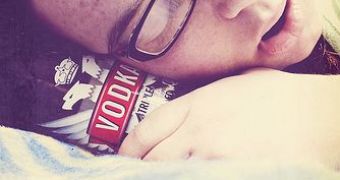Between drinking because it's “what everybody else does” and not doing it because it damages health, most people follow a pattern: have a drink while you're young and quit later. Scientists at Loyola University Health System have studied this phenomenon and experimented on rats. They concluded that alcohol is bad for you, especially if you're a binge drinking teen.
An adolescent is a growing adult, and any excess should be avoided in order to fully develop a healthy body and mind. At the same time, teenage is the time in your life when nobody understands you and all you hear around you are restrictions. So, the natural reaction of a teenager is to break boundaries, and rebel from society conveniences.
The thing that comes in handy first is drinking alcohol. Whether it is at parties or simply with friends, if a woman passes four drinks and a man five in one occasion, they are considered binge drinkers. If anyone gets to 10-15 drinks, then they are considered heavy binge drinkers. This bad habit usually begins around the age of 13 and reaches the highest point between 18 and 22, before declining. Statistics from the Substance Abuse and Mental Health Services Administration say that in the past 30 days, 36 percent of people aged 18-20 reported having one binge-drinking occasion.
Scientists tested alcohol's effects on lab rats. They injected them with different dosage of alcohol and analyzed the genes that help bone formation. Alcohol destroys a rather high percentage of these genes and the rat's body can't replace them even after 30 days (this means almost 3 humans years).
Researchers admit that this phenomenon might not be exactly the same in people, but stress that it certainly does not do any good. Bone mass is consolidated during adolescence years and if during this period this phenomenon is inhibited by something, this might increase risks of bone fractures and osteoporosis later in life. “Lifestyle-related damage done to the skeleton during young adulthood may have repercussions lasting decades,” bone biologist John Callaci, PhD mentioned in the study's conclusions.
These findings have proven very useful for scientists because their next goal now, is to try to develop drugs that minimize bone loss in people who drink heavily and expose themselves to risks of osteoporosis. This might prove easier to do that changing the mentality and habits of an entire generation.

 14 DAY TRIAL //
14 DAY TRIAL //